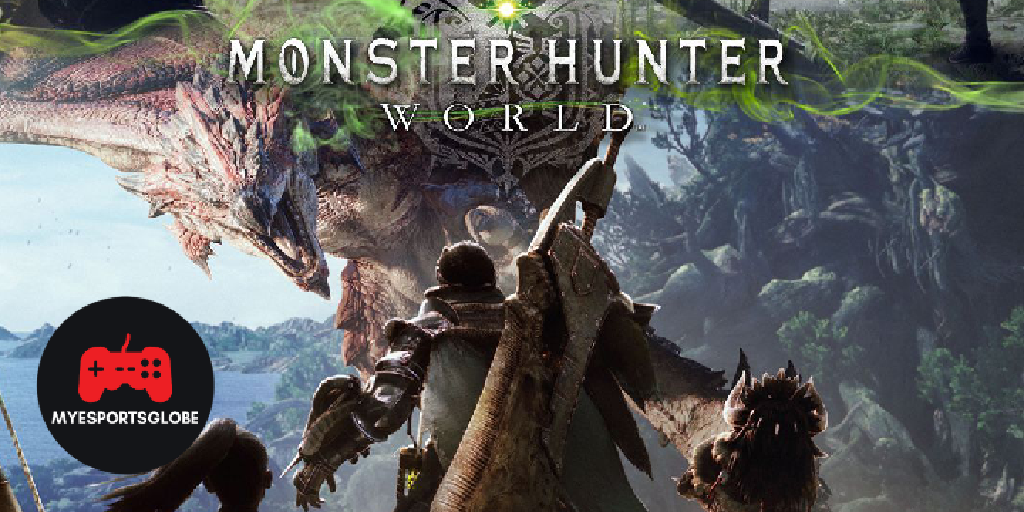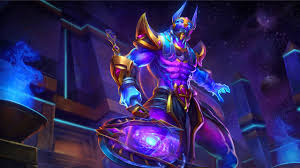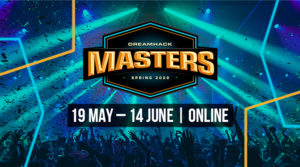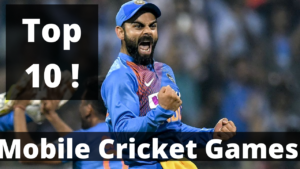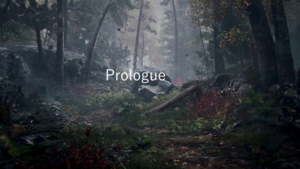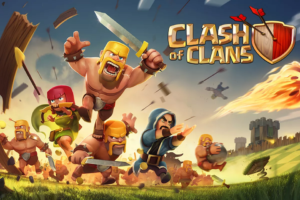Monster Hunter: World is an action role-playing game developed and published by Capcom. A part of the Monster Hunter series, it was released worldwide for PlayStation 4 and Xbox One in January 2018, with a Microsoft Windows version following in August 2018. In the game, the player takes the role of a Hunter, tasked to hunt down and either kill or trap monsters that roam in one of several environmental spaces.
If successful, the player is rewarded through loot consisting of parts from the monster and other elements that are used to craft weapons and armor, amongst other equipment. The game’s core loop has the player crafting appropriate gear to be able to hunt down more difficult monsters, which in turn provide parts that lead to more powerful gear. Players may hunt alone or in a group of up to four players via the game’s online multiplayer.

Announced at E3 2017, Monster Hunter: World adopts the series’ standard formulas from its older home console roots and recent handheld games to take advantage of the higher processing power provided by modern consoles and computers.
Changes made in Monster Hunter: World include creating environmental spaces that are fully connected and removing the “zones” that were necessary for the PlayStation 2 and handheld games, more advanced monster artificial intelligence and physics, a more persistent cooperative multiplayer experience, and a refinement of the game’s tutorials and user interface to help with bringing new players into the series.
These changes led Capcom to plan for the game’s simultaneous release worldwide, since Monster Hunter as a series has generally languished outside of Japan partially due to disparate release schedules. Capcom also opted to support online play between these different geographic regions for similar reasons. The delay for the Windows release was attributed to Capcom seeking to make sure its first foray into the Windows market was optimized for players on computers.
GAMEPLAY –
Monster Hunter: World is an action role-playing game played from a third-person perspective. Similar to previous games in the series, the player takes the role of a player-created character who travels to the “New World”, an unpopulated land mass filled with monsters, to join the Research Commission that studies the land from their central command base of Astera.
The Research Commission tasks the Hunter to hunt down and either kill or capture large monsters that roam outside Astera to both protect the Commission and to study the monsters there. The player’s character does not have any intrinsic attributes, but instead these are determined by what equipment the character is equipped with.
This includes a weapon, selected from the series’ fourteen archetypes (such as long sword, bow, or hammer), which then further defines the types of combat moves and abilities the player can use, and pieces of armor, which can lead to beneficial or detrimental combat skills if matched properly.
While some basic equipment can be purchased using in-game money, most equipment is built from loot obtained by slaying or trapping monsters, rewards from completing quests, or items gathered while in the field. This creates a core loop of gameplay that has the player fight monsters they can beat to obtain the right loot to craft improved weapons and armor to allow them to face more powerful monsters and the potential for even better equipment.
After taking a quest in Astera, or after choosing to simply go on an open-ended expedition, the player is taken to a base camp in one of six large regions that make up the New World. Each region is made up of numbered zones, but unlike previous Monster Hunter games, these zones are seamlessly connected, and there are no loading screens when moving between zones. The player must traverse zone to zone, though they can quick-travel to any of the base camps in that particular region when outside of combat.
From camp, the player can acquire limited provisions, rest to restore their health, and new to World, have a meal that provides limited-time buffs to the player. The player sets out to track down monsters, which in World is aided with the use of Scout flies, which hover near tracks and other signs of large monsters, or highlight resources that the player can collect such as flora, ores, bones, and insects.
Investigate the traces of the monster leads to improving the Scout flies’ abilities for the quest, eventually enabling them to lead the player via their glowing flight path towards the monster they seek; further, investigating these help the player to gain research towards the monster that helps them gain insight on its strengths, weaknesses, and behavior.
The game supports both single-player and up to four player cooperative mode while being online; there is no local offline multiplayer. The game’s quest system is the same in both modes. Players gather in multiplayer servers supporting up to sixteen players, during which they can post quests to invite others to join, or join other existing quests as long as they have progressed far enough in the game’s storyline.
If there are only one or two hunters on a quest, each brings with them a Palico (an anthropomorphic sentient cat species) to assist them in combat; these Palico can be equipped with weapons and armor crafted in the same manner as the hunter themselves. If there are less than four players in a party, a party member can launch a red SOS flare, which other players, while in their instance of Astera, can opt to join to help out, creating a drop-in/drop-out system. The game also supports Squads, the equivalent of clans or guilds in typical massive multiplayer online games.
The game allows players in different release regions to work together; the game will use a predetermined set of common greetings and commands that are translated to the various languages so that players can effectively communicate with each other. However, players are limited to cooperating with those on the same platform, and will not feature cross-platform play. Players also need to register with their console’s service (PlayStation Network or Xbox Live) to use multiplayer features.
With an aim to reach a wider audience than past games, Monster Hunter: World also provides more information to players, such as a companion that will warn the player when they are running low on health, and more details on the advantages and disadvantages of weapons and armors against specific monsters.
PLOT –
The player controls a hunter that they can name, supported by an assistant handler, and a palico who are a part of the Fifth Fleet which has been summoned by the Research Commission to provide more support to the New World. A particular focus of the Expedition is to study Elder Dragons, powerful beasts that can affect entire ecosystems, and why they migrate to the New World every ten years in an event known as the Elder Crossing.
While traveling to the New World, the Fifth Fleet encounters Zorah Magdaros, a massive Elder Dragon the size of a mountain. After being rescued and arriving at the base camp, known as Astera, the Hunter and their Handler undertake various tasks to explore the area and study Zorah Magdaros at the behest of the Commander of the Expedition.
The Expedition determines that Zorah Magdaros is dying and is migrating to a massive graveyard, known as the Rotten Vale. An Expedition-led capture mission against Zorah Magdaros is foiled by Nergigante, an Elder Dragon that feeds on other Elder Dragons, and is protecting Zorah Magdaros as its future meal. After escaping the ambush, Zorah Magdaros unexpectedly enters the Everstream, a massive underground river that runs under the entire New World, rather than traveling to the Rotten Vale.
After further investigations, the Expedition learns that if Zorah Magdaros dies within the Everstream, its released bio-energy will destroy the New World. With no time to evacuate, the Expedition develops an emergency plan to intercept Zorah Magdaros and drive it to the ocean, where its released bio-energy will form a new aquatic ecosystem. Nergigante once again interferes, but this time is driven off by the Hunters, and Zorah Magdaros is successfully driven into the ocean.
However, when Nergigante flees to the Elder’s Recess, an area in the Everstream with massive amounts of stored bio-energy, the presence of Nergigante drives away it’s Elder Dragon prey toward neighboring locations, upsetting each individual ecosystem. With the help of the Admiral, the true leader of the Expedition, the Hunter is able to track down and kill Nergigante. With Nergigante dead, the Elder Dragons calm down and return to the Recess.
After their defeat by the Hunter, the source of energy within the Elder’s Recess is discovered: Xeno’jiiva, an infant Elder Dragon, which had been incubating within the Elder’s Recess, and was feeding on the bio-energy of dead Elder Dragons. Xeno Jiiva hatches upon being discovered, and at the behest of the Admiral, the Hunter defeats it before it can wreak havoc on the world. With the Elder Crossing now fully understood, the Expedition is considered finished, but members are offered the chance to stay in the New World to continue their research.
GAME DEVELOPMENT –
Monster Hunter: World is considered a main installment in the Monster Hunter series, according to the game’s senior producer Ryozo Tsujimoto and director Yuya Tokuda. Along with executive director Kaname Fujioka, Tokuda served as a director for Monster Hunter 4 and Monster Hunter 4 Ultimate. Development of World started about three years prior to the E3 2017 reveal, following a year of brainstorming on what the next main game in the series would be.
With the series more than a decade old, Capcom re-evaluated where they wanted to take the series, and concluded that with the hardware capabilities of the new consoles, they could realize a different vision compared to the handheld entries. According to Capcom Europe’s COO Stuart Turner and marketing director for Europe, the Middle East and Africa Antoine Molant, the divisions of Capcom outside of Japan had suggested for Capcom to embrace a Western release with full online gaming support.
The Japanese teams had been wary of this, since the series normally assured them of three to four million sales within Japan and they would risk those assured numbers by making the game more global. However, the risks of taking a more worldwide approach were embraced when Sony said they would help support this approach, since they believed this would also help to boost PlayStation 4 sales. Additionally, the sheer scale of the project also used a large budget which they deemed necessary to “go up against Hollywood movies”, and cost-cutting measures had to be adopted throughout Capcom.
Release –
Announced at E3 2017, Monster Hunter World was released for the PlayStation 4 and Xbox One on January 26, 2018. In addition to digital and normal physical releases, the game was shipped with a Collector’s Edition that includes an art book, a CD with the game’s soundtrack, and a statue of one of the monsters from the game. A limited run of PlayStation 4 Pro consoles emblazoned with Monster Hunter: World art was released in Japan on December 7, 2017. A three-disc original soundtrack of the game’s music was released in Japan on February 14, 2018, composed by Tadayoshi Makino, Zhenlan Kang, Akihiko Narita, and Yuko Komiyama.
A limited demo, exclusive to PlayStation Plus members, was offered from December 9–12, 2017; the demo included practice areas for all fourteen weapon types, and three hunting quests that can be completed alone in solo play or using the networked cooperative support planned for the full game. Players that completed the three quests received bonus in-game items and a cosmetic item when the main game was released. A second demo period for PlayStation 4, no longer requiring PlayStation Plus, ran between December 22–26, 2017, and a final beta period, adding one additional quest, ran from January 19–22, 2018.
SALES –
Monster Hunter: World shipped over five million copies three days after release, including digital sales, which exceeded all other previous games in the series. According to Famitsu, 1.35 million copies were sold at retail in Japan during these three days, and an estimated 2 million sales including digital sales; these were accompanied by a boost in PlayStation 4 console sales in the same week, with over 140,000 consoles sold.
Two weeks after release, Capcom announced that its overall shipment numbers had risen to 6 million, making World the fastest-selling Monster Hunter game and the fastest-selling game of any of their properties. With this, World became Capcom’s fourth highest-selling game. NPD Group reported that World was the top-selling game in the United States within both January and February 2018.
To read more about your favourite games go to our website, MyEsportsGlobe.
If you haven’t yet then do follow MyEsportsGlobe on social handles to get regular updates –

